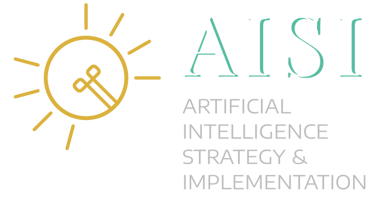AI Search Optimisation: What Will Change v. Won't Change
Adapt your SEO for the era of AI search. This guide details the evolution of content strategy and authority signals, while reinforcing the core principles of brand and value that still drive success.
AI SEARCH OPTIMISATION
Garret Farmer-Brent
7/22/2025


The rise of generative AI is reshaping the digital marketing landscape. While it's tempting to declare a complete revolution, the reality is more nuanced. The emergence of answer engines like Google's AI Overviews, ChatGPT, and Perplexity is certainly changing how users find information, forcing us to adapt beyond the traditional SEO playbook.
However, many foundational principles of good marketing remain as crucial as ever. The key to success in this new era isn't about abandoning everything we know, but about understanding which strategies need to evolve and which timeless truths we must hold onto.
To succeed in this new landscape, marketers must embrace AI Search Optimisation, a discipline that encompasses Answer Engine Optimization (AEO), Generative Engine Optimization (GEO), and LLM Optimization. It's about ensuring your brand is not just found, but is the definitive answer wherever users ask questions.
But what does this practically mean? While some core marketing principles remain steadfast, many of our trusted strategies, metrics, and tactics require a radical reinvention. Here’s what will and won't change in the new era of AI search.
The New Strategic Imperative: Redefining Your AI Search Strategy
The most immediate and high-level impact of AI search is on marketing strategy itself. How we plan, measure, and compete is being redefined.
What Will Change
Success Metrics:
For years, the primary Key Performance Indicator (KPI) has been keyword ranking. This is now being replaced by AI visibility and share of model. Success is no longer about being #1 on a list of blue links; it's about how frequently your brand is cited as a source in Google's AI Overviews or woven into the responses of chatbots like ChatGPT.
As the HBR article "Forget What You Know About Search" points out, the goal is to increase your brand's share of an AI model's "awareness" for a given topic. This requires a new suite of tools and a new way of thinking about performance.
Keyword Strategy:
The era of targeting isolated, high-volume keywords is over. AI models think in terms of concepts and relationships. Therefore, our focus must shift to building out comprehensive topic clusters that cover a subject from every possible angle.
Furthermore, as voice search and conversational AI become dominant, optimizing for long-tail, conversational questions that mirror natural human language is paramount for effective Answer Engine Optimization (AEO).
Competitive Analysis:
Traditional competitive analysis involved tracking where rival domains ranked for a set list of keywords. The new standard is far more nuanced. It requires analyzing which competitors are being cited by AI engines for your core topics and, more importantly, reverse-engineering why their content is being selected.
This means a deeper analysis of their content structure, E-E-A-T signals, and overall digital authority.
What Won't Change
The Primacy of User Intent:
This is the bedrock principle that will never change. Understanding the "why" behind a user's query—whether typed into a search bar or spoken to an assistant—remains the most critical element of any successful strategy. Content that fails to satisfy the user's core need, whether that user is a human or an AI acting on a human's behalf, will fail.
The Need for a Strong Brand:
In a world of AI-synthesized answers where multiple sources are blended into one, a recognizable and trusted brand name becomes a powerful heuristic for credibility. As users scan AI-generated responses, they will naturally gravitate towards the brands they already know and trust. This makes brand building more important than ever.
The Goal of Providing Value:
Ultimately, the objective of content is to solve a problem, provide a clear answer, or fulfill a need. Gimmicks and optimization tricks will have a shorter shelf life in the AI era. Content that is genuinely helpful, deeply insightful, and provides unique, tangible value to the end-user will always have a competitive advantage.
The Content Evolution: Crafting AI-Ready Content for AEO Success
The most immediate and high-level impact of AI search is on marketing strategy itself. How we plan, measure, and compete is being redefined.
What Will Change
Content Formatting:
A much heavier emphasis will be placed on machine readability. Clean, semantic HTML is no longer a "nice-to-have"; it's a prerequisite for being understood by AI.
This is a core tenet of LLM Optimization. It means a strict adherence to:
Structured data using Schema markup (like FAQPage, HowTo, and Article schemas)
The use of logical heading hierarchies (H1, H2, H3)
Breaking down complex information into easily digestible lists and tables.
The Role of Multimedia:
For years, video and audio content were seen as supplementary assets. In the AI era, they are transitioning into primary, citable sources. AI models can now "watch" YouTube videos and "read" podcast transcripts. This means optimizing video titles, descriptions, and spoken content for conversational queries is a critical new frontier for GEO.
Content Architecture:
The "skyscraper" technique, which involves creating a single, massive article to cover a topic, will be superseded by the more strategic approach of building interconnected topic clusters. This architecture, which features a central "pillar" page linked to multiple, in-depth "cluster" pages, is a powerful way to demonstrate comprehensive authority and expertise on a subject to an AI model.
What Won't Change
The Demand for Originality:
As AI becomes proficient at summarizing existing information, the value of originality will skyrocket. Content based on unique data, proprietary research, firsthand case studies, and genuine expert opinions will become the most valuable assets. This is your moat; it's what makes your content difficult for AI to replicate and positions you as a primary source worth citing.
The Power of Storytelling:
While AI models are designed to extract facts and data, humans are wired to connect with narratives. Weaving your expert information into a compelling story, complete with a clear point of view and relatable examples, will remain an essential strategy for brand building and creating memorable, engaging content.
The Mandate for Factual Accuracy:
In the fight against AI "hallucinations" and misinformation, generative engines place an immense premium on trust. Providing verifiably correct information, citing credible external sources, and ensuring your content is factually sound is non-negotiable. E-E-A-T (Experience, Expertise, Authoritativeness, and Trustworthiness) is the filter through which all content will be judged.
The Authority Revolution: Building Trust Signals for Generative AI
Finally, AI search forces us to rethink how we build authority. It's no longer just about your own website; it's about your brand's reputation across the entire digital ecosystem.
What Will Change:
The Definition of a "Backlink":
For two decades, the hyperlink has been the primary currency of authority. Now, its definition is expanding. Unlinked brand mentions, co-citations (your brand being mentioned in the same context as established competitors), and the overall contextual relevance of your brand's name across the web are becoming powerful authority signals for AI models.
The Importance of Author Authority:
Generative engines don't just evaluate the trustworthiness of a domain; they evaluate the expertise of the individual author. An author's digital footprint, their bylines on other reputable sites, and their social media presence all contribute to the E-E-A-T score of the content they produce. Author bios and expert profiles are now critical optimization points.
The Role of Community Platforms:
Strategic, value-add participation in forums like Reddit and Quora will evolve from a simple community management task into a direct, measurable authority-building tactic. These platforms are vast repositories of conversational data that AI models use to understand public sentiment and identify real-world experts and solutions.
What Won't Change:
The Value of High-Quality Links:
While the definition is expanding, a traditional backlink from a highly respected, authoritative, and topically relevant website will continue to be a top-tier signal of trust and a cornerstone of any digital marketing strategy.
The Need for a Diverse Digital Presence
Authority is built in the aggregate. A strong reputation requires being active and consistent across multiple relevant platforms where your audience spends their time—be it social media, industry publications, or professional networks. A one-dimensional presence is a weak signal.
The Slow, Compounding Nature of Trust:
This is the ultimate truth. True authority cannot be faked or acquired overnight. It is the result of a consistent, long-term commitment to publishing high-quality, trustworthy content and engaging authentically with your community. There are no shortcuts.
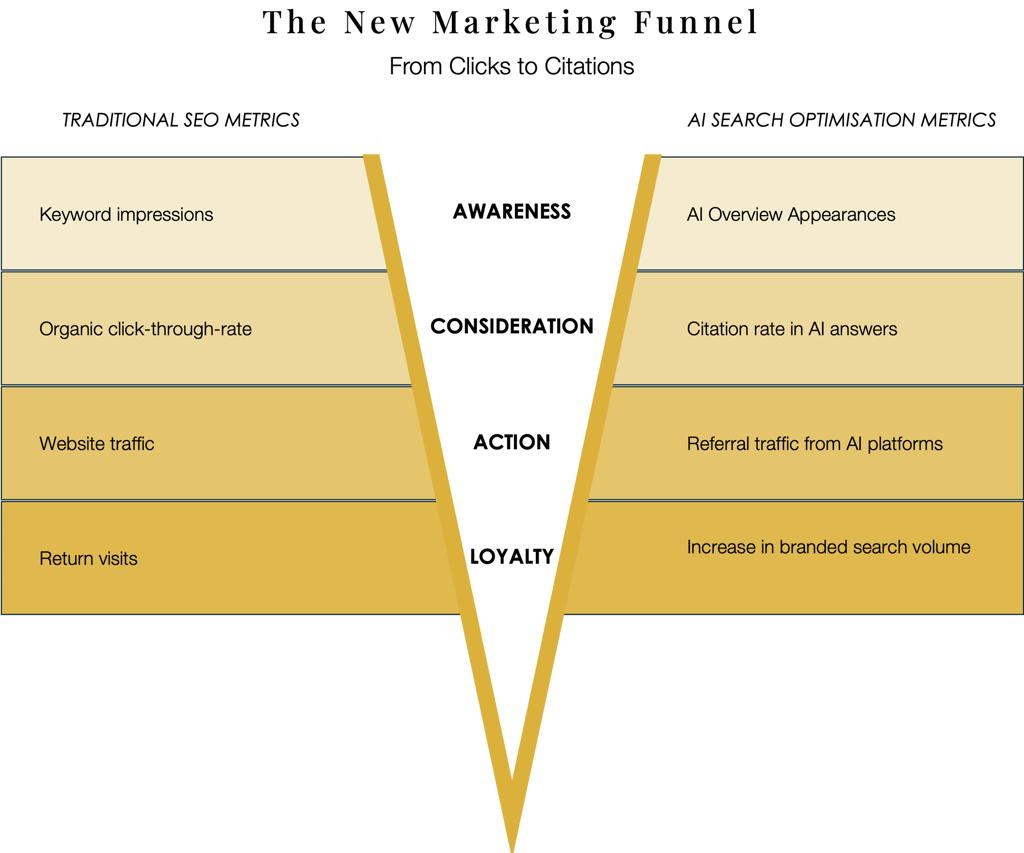

Sources: Harvard Business Review, Amsive, Terakeet
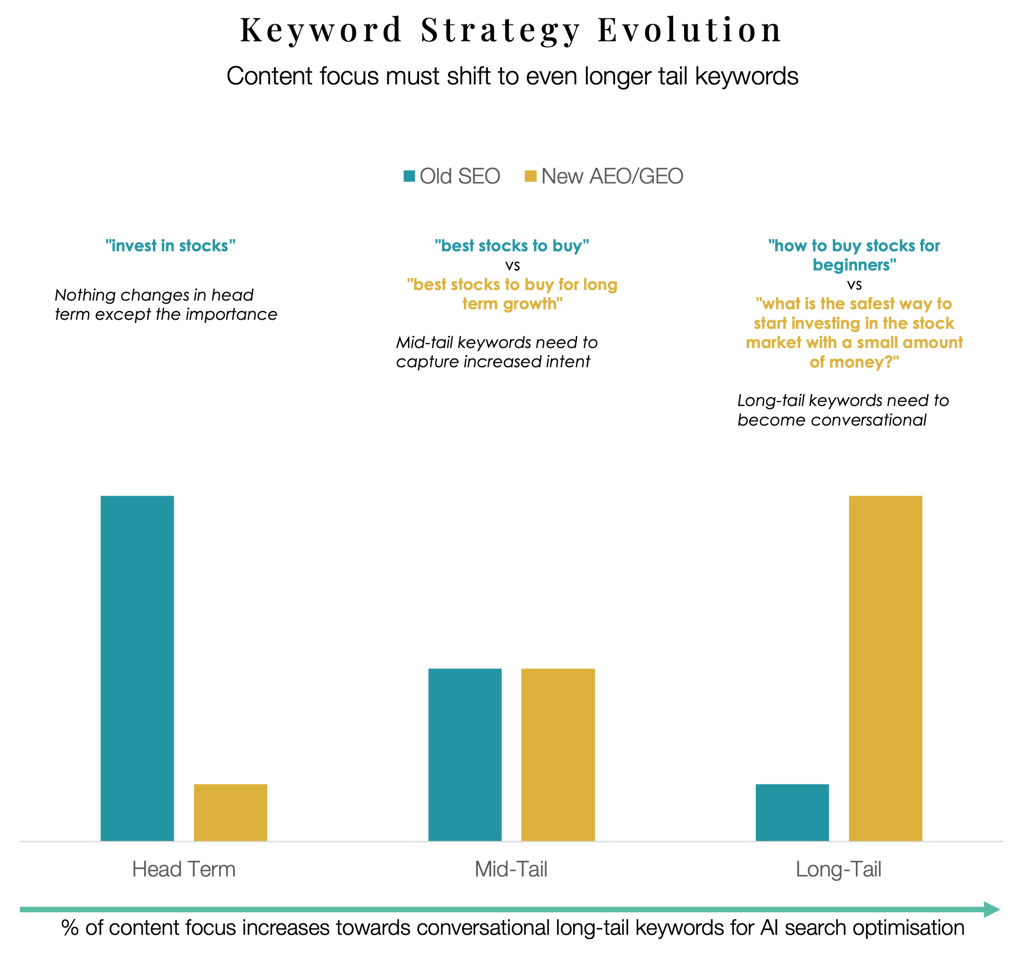

Sources: Neil Patel, Backlinko, and Google's developer blog
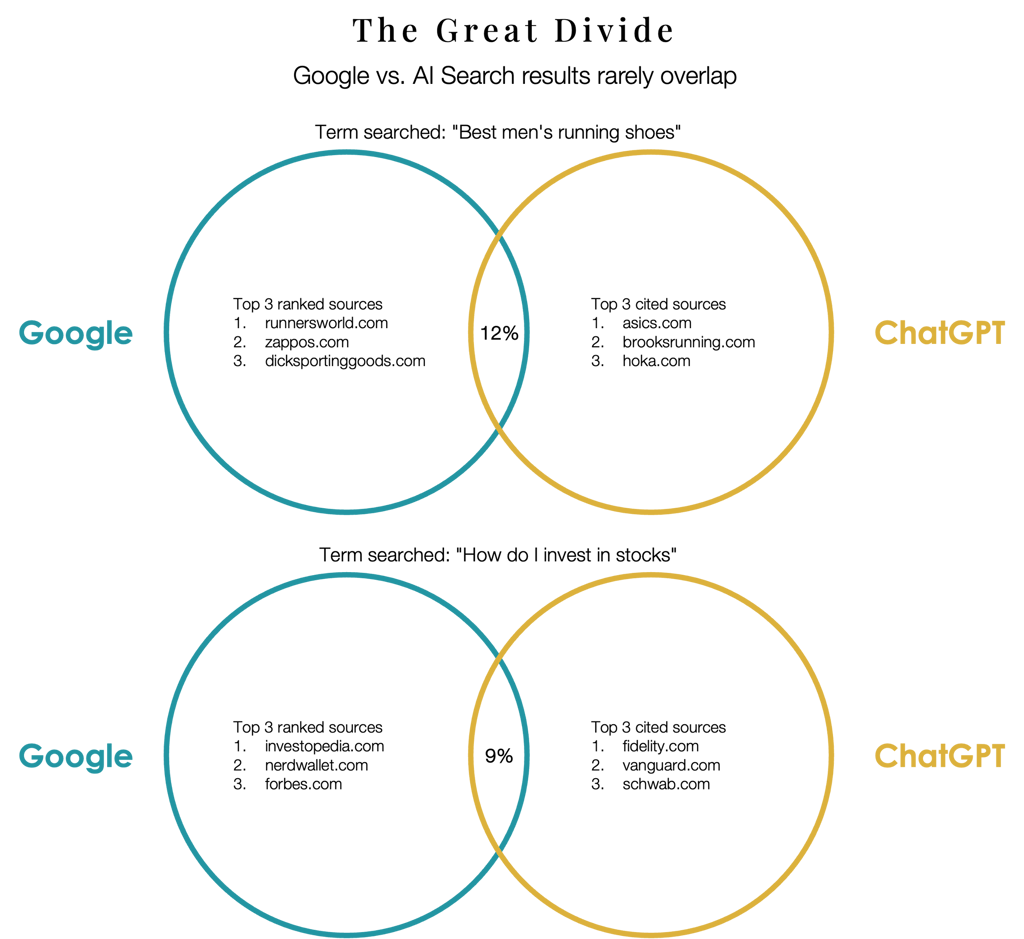

Sources: Profound AI
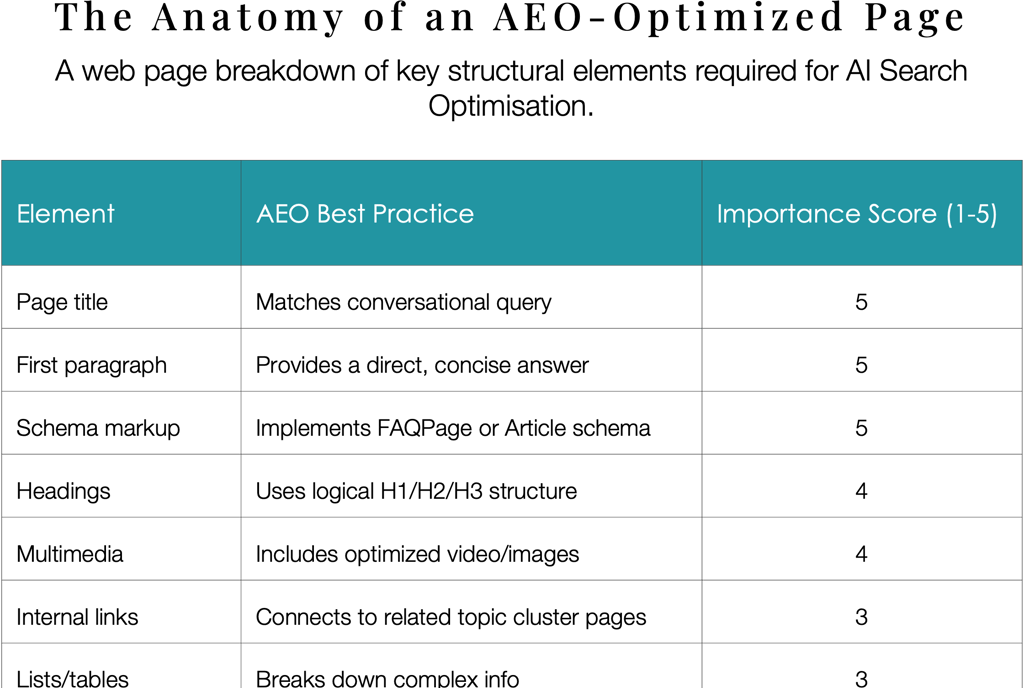

Sources: Seer Interactive
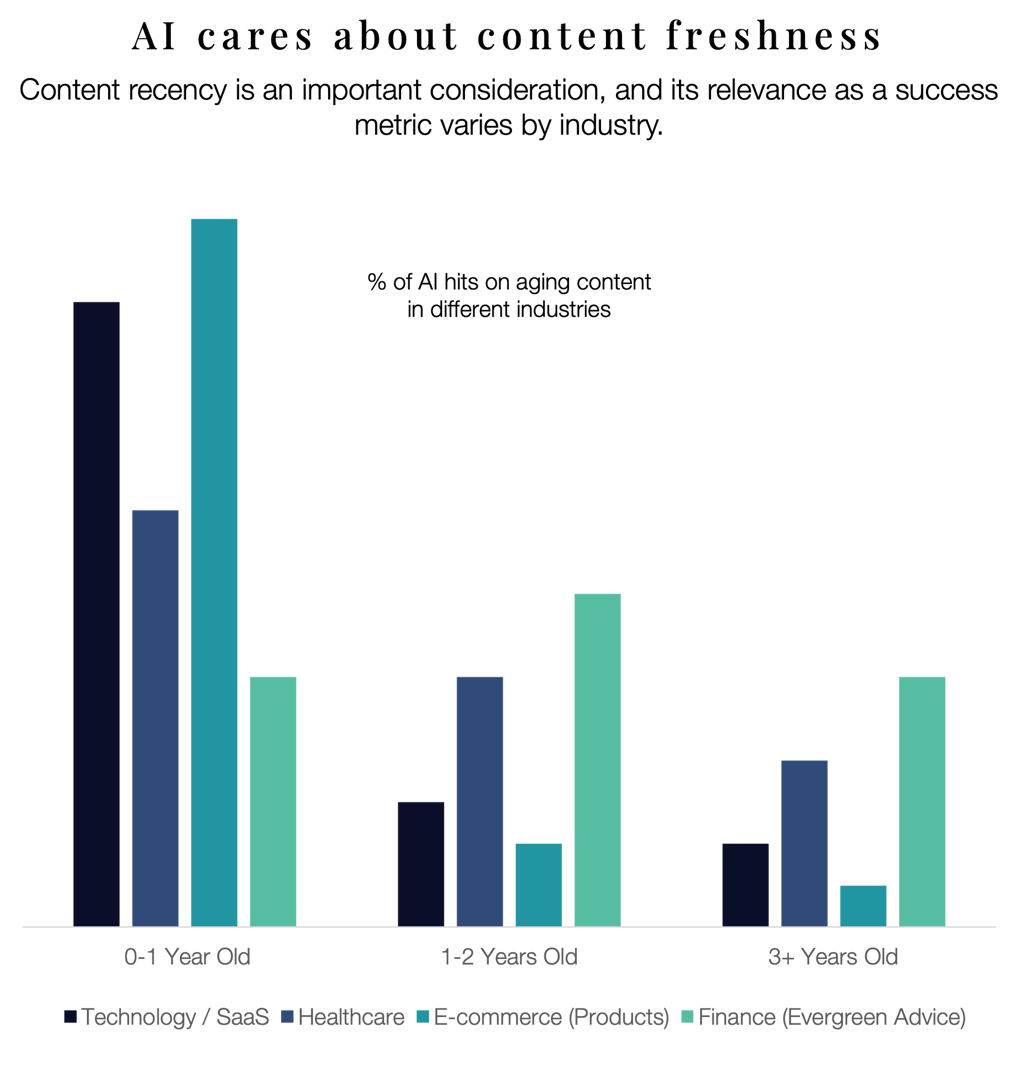

Sources: Google's developer blog, Search Engine Land, and Writesonic
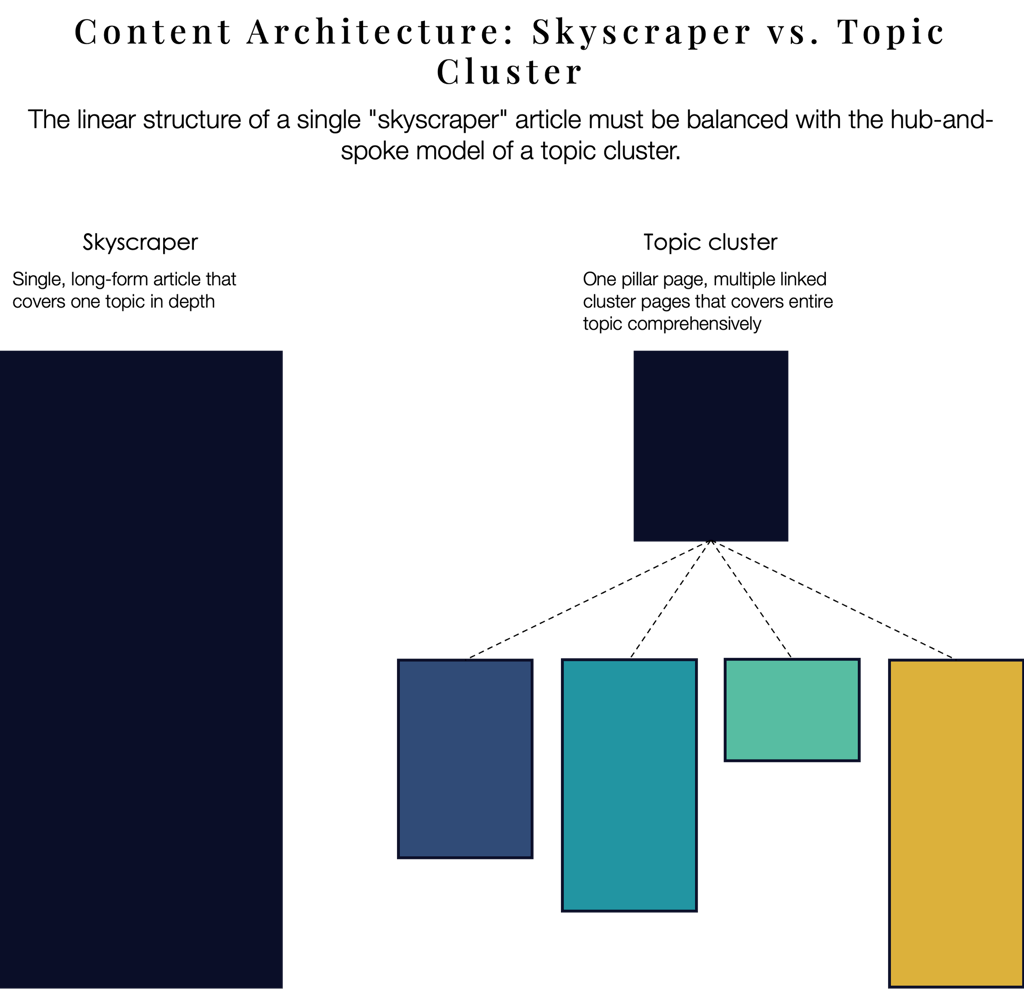

Sources: Backlink and Analytify
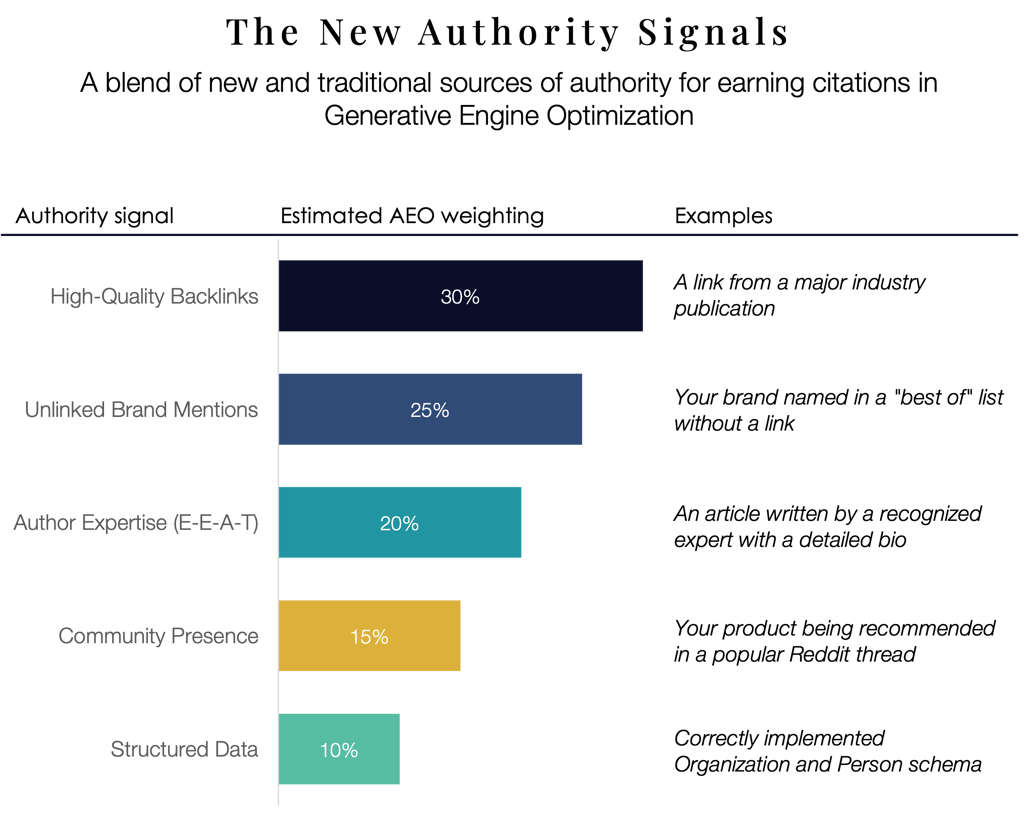

Sources: Kalicube, Terakeet, and Zapier
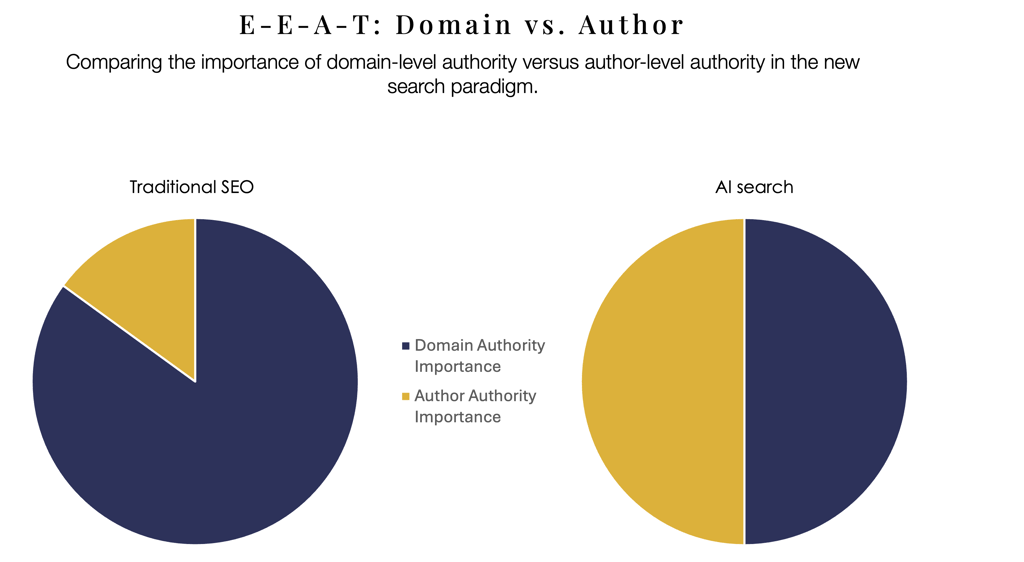

Sources: Google's developer blog and Terakeet
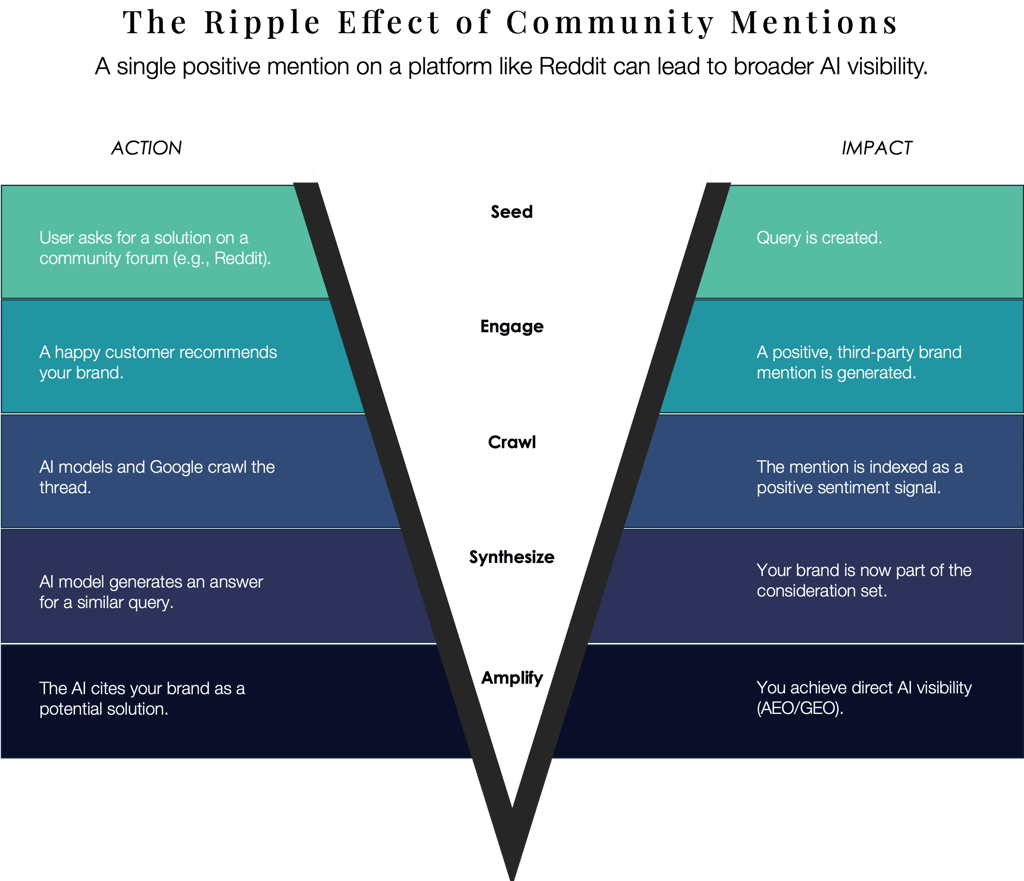

Sources: Neil Patel and Seer Interactive
Is it time to consider how to optimise your business for AI growth?
Does you business have a plan to take advantage of the AI evolution?
Your first step is here.
Begin your AI business upgrade today by taking our comprehensive AI Readiness Assessment.
You'll receive a full business analysis report at no charge.
